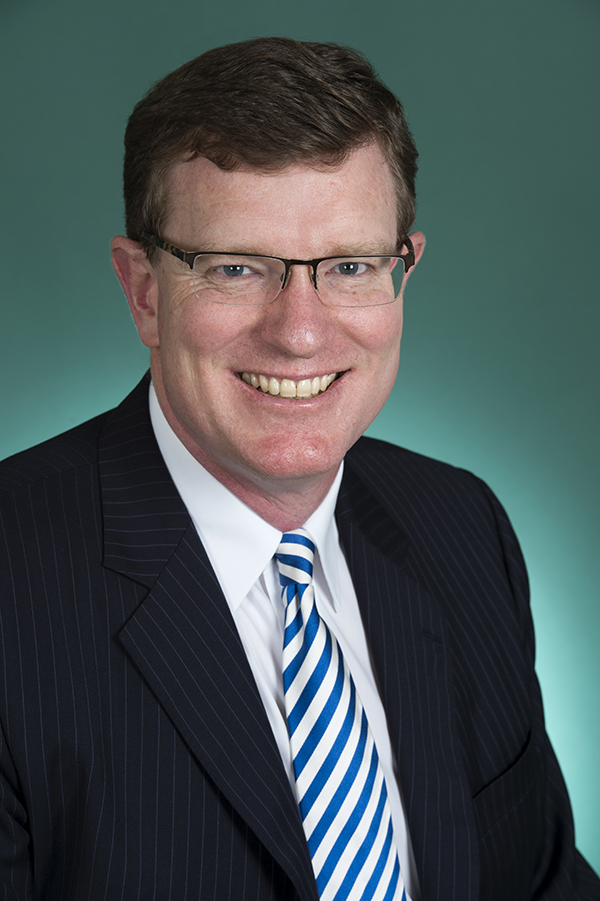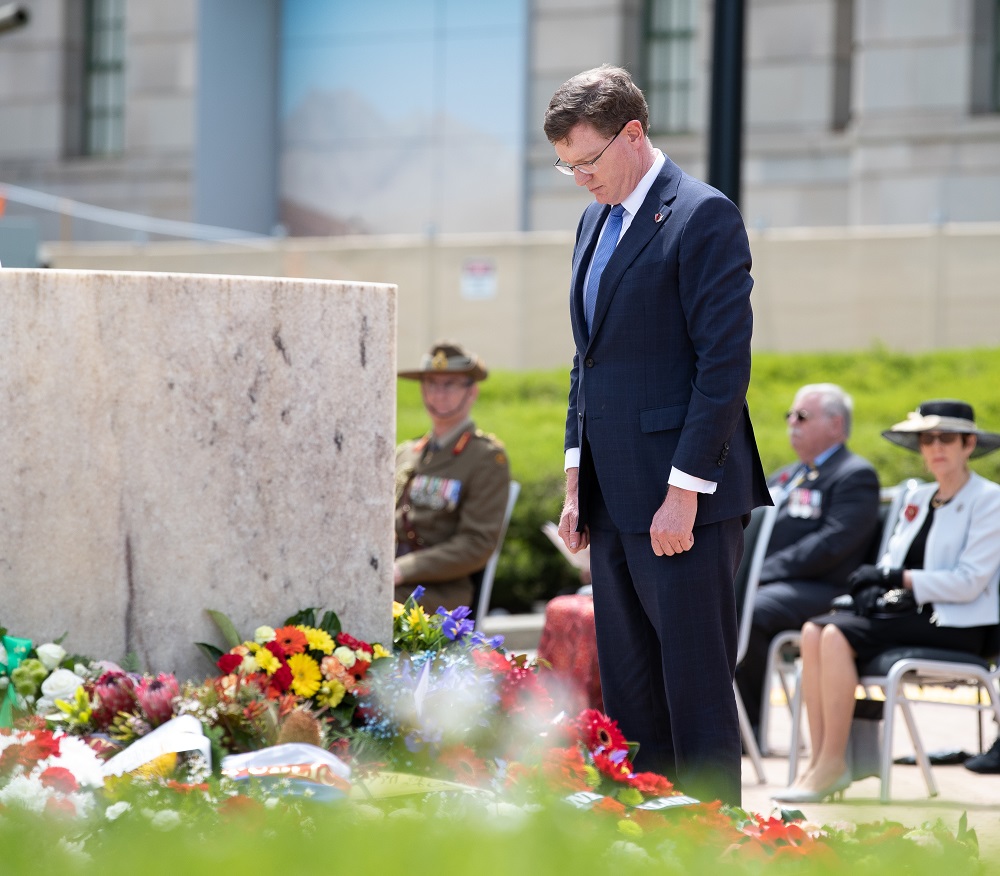From the Minister
The Hon Andrew Gee MP
Minister for Veterans’ Affairs
Minister for Defence Personnel

At the 11th hour, of the 11th day, of the 11th month – our nation fell silent to observe Remembrance Day, and honour all those who have given their lives in the defence of Australia and the freedoms that we so often take for granted.
It was an incredibly moving experience to lay a wreath at the Stone of Remembrance at the Australian War Memorial, and to pause to remember the more than 100,000 Australians who have given everything defending our country and our values.
The Memorial looks quite different at the moment as work continues on the $500 million development project, which will ensure it remains at the heart of Australia’s continuing story of service and sacrifice.
The original sandstone architecture and the sacred areas within the memorial will remain unchanged.
The role of our service personnel in peacekeeping operations and Afghanistan will rightly be a focus.
Australia’s withdrawal from Afghanistan has been particularly difficult for many of our veterans, service personnel and their families.
As the situation was unfolding, I directed the Department of Veterans’ Affairs to reach out to our Defence community as well their families to offer support.
I have also had the opportunity to personally meet with ex-service organisations and many who served in Afghanistan.
All who deployed to Afghanistan should be very proud of all they achieved there.
They dismantled terrorism networks, saved lives, improved medical services, built critical infrastructure, and helped a generation of women and girls access education and build careers.
Our nation will never forget their enormous contribution in making Australia, Afghanistan and the world, a safer and better place. And we will never forget the 41 Australians who died in that conflict.
The experience of our contemporary veterans highlights the critical importance of providing ongoing support for our veterans and their families.
This year, the Australian Government is investing $11.7 billion in funding to support around 336,000 ex-service personnel and their family members.
This includes more than $40 million to establish Veteran Wellbeing Centres across Australia, which provide access to a range of support services, better targeted to the specific needs of veterans in local communities.
The Australian Government is also investing $32 million this financial year alone in grant programs to help the many groups that provide complementary services to our veterans.
We have much to be proud of when it comes to recognising and supporting those who have served our nation, however we must always strive to do things better.
There has been good work in recent years to improve the transition process from Defence to civilian life, including my department engaging earlier with Australian Defence Force (ADF) members, embedding Veteran Support Officers on 56 bases, and a tailored needs-based approach that includes the use of transition coaches.
We have provided $17.7 million to establish a Joint Transition Authority (JTA) within the Department of Defence and I am keen to see it fast-tracked.
In the recent Budget, $98.5 million was delivered for hundreds of new claims processing officers in the Department of Veterans Affairs.
I don’t want to see these officers dropped into an inefficient system, tangling themselves in red tape. That’s why independent consultants McKinsey & Company have been brought in to improve the system and cut waiting times.
Veterans’ legislation has long been cumbersome and confusing, and so I have instructed my department to create a roadmap to harmonise the three Acts dealing with compensation and rehabilitation. This is a long-term piece of work, but it is vitally important that it begins.
Some issues such as veteran incarceration and homelessness are on my agenda to address with the states and territories. All levels of government need to be working together to improve the care and treatment of veterans.
The Royal Commission into Defence and Veteran Suicide, which has now commenced public hearings, will be a watershed moment for Australia.
We will hear many heartbreaking and tragic stories from veterans and those who have lost loved ones to suicide.
Difficult though these stories will be to hear, our nation must listen to them and must hear them.
Mistakes and failings must be acknowledged. Truth must be told. Action must be taken.
This is the moment.
Let me be clear, we will not wait for the Royal Commission to finish to get cracking on reforms.
I am determined to address the high rates of suicide among the ADF and veteran community.
And I am determined to deliver even better outcomes for veterans and their families.
Displayed with pride at the Australian War Memorial is a portrait of Australia’s first Victoria Cross recipient, Sir Neville Howse.
He was awarded his Victoria Cross during the Boer War, risking his own life to save the life of another.
Under heavy fire, his horse was shot from underneath him before he carried his wounded comrade to safety.
Besides being a soldier, he was also a surgeon and a statesman, serving in our Parliament as the federal Member for Calare. He also served as mayor of my home town of Orange.
In March of 1929, the Western Champion newspaper described Sir Neville as ‘the best friend that the soldiers possess…with hundreds of soldiers who can thank him for the splendid way in which they have been treated’.
May the Parliament and the departments that support it always be guided by the example of Sir Neville.

Minister Gee laying a wreath at the Australian War Memorial on Remembrance Day
